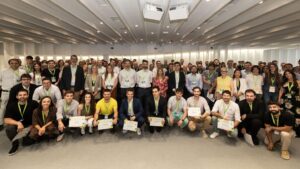The advancement of artificial intelligence (AI) has become a valuable tool in promoting gender equality, especially in regions of Southeast Asia where opportunities for women are limited. The UN has begun implementing various initiatives in this area, leveraging the growing digital literacy and internet access in countries like the Philippines, Thailand, and Indonesia.
In the Philippines, the International Labor Organization (ILO) has launched a program that trains entrepreneurs, with a focus on empowering women in remote areas. Using artificial intelligence chatbots, businesswomen can receive technical advice and support in digital marketing without the physical presence of a trainer. This innovation has allowed many women, especially those selling coconut products on Siargao Island, to improve their online visibility and manage their content more efficiently.
Meanwhile, Thailand has developed the SoSafe platform, designed to provide personalized assistance to women and girls in vulnerable situations, addressing critical issues such as sexual harassment and domestic violence. Since its launch, SoSafe has reached over 600,000 users, providing vital information on social rights and support services, and even facilitating the reporting of domestic violence cases.
In Indonesia, the Social Innovation Platform initiative aims to increase female participation in decision-making in traditionally male-dominated communities. Through a digital tool that collects opinions and proposals, the goal is to open dialogue and ensure that all voices, including those of women, are heard in community planning processes.
These initiatives reflect the UN’s strategy to accelerate the Sustainable Development Goals, with a particular emphasis on gender equality. David McLachlan-Karr, director for Asia and the Pacific at the UN Development Coordination Office, highlighted that these projects are a clear example of how the organization is leveraging technological innovations to address 21st-century needs. It is anticipated that in the coming years, these actions will benefit an increasing number of women in both their professional and personal lives.
Referrer: MiMub in Spanish












